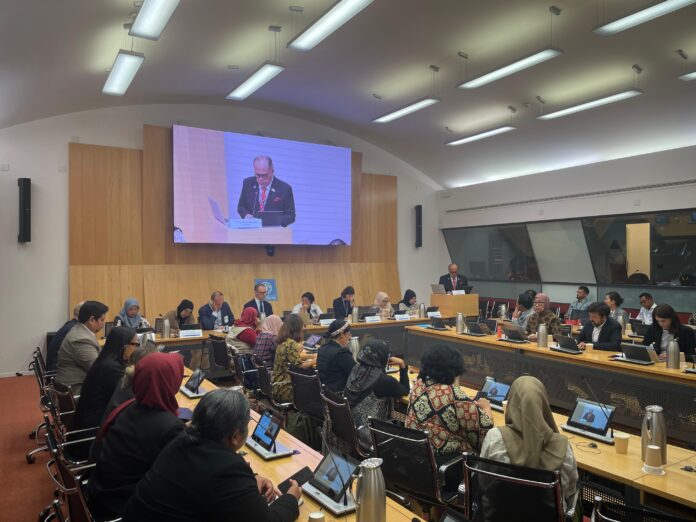Ecobiz.asia – Indonesian women farmers on Friday called for a fair transition toward sustainable trade, warning that the European Union’s deforestation law could push millions of smallholders out of global supply chains unless backed by concrete support.
The message was delivered at an international roundtable held at the Food and Agriculture Organization (FAO) headquarters in Rome, Friday (Sept 19, 2025).
The event, titled “Sustainability and the Role of Woman Farmer in Agrifood Systems”, was opened by Indonesia’s Ambassador to the UN in Rome, Junimart Girsang, and moderated by Lauren Phillips, Deputy Director of FAO’s Rural Transformation and Gender Equality Division.
It was co-hosted by the Indonesian Embassy and the World Farmers’ Organization (WFO), coinciding with the UN General Assembly’s declaration of 2026 as the International Year of the Woman Farmer.
The presence of Indonesian women farmers at FAO was part of their ongoing effort to bring their voices directly to policymakers, industry players and think tanks. Earlier, the farmers also took part in dialogues in Brussels and London, carrying the same message a just transition to sustainable trade must not come at the expense of smallholders.
Erma Rheindrayani, Director at Indonesia’s Ministry of Foreign Affairs, said women farmers were among the most vulnerable.
“If sustainability fails to address affordability, access, and inclusion, it will fail the very people who feed the world,” she said.
Cici Tiansari, a palm oil smallholder from Jambi, told the forum how she and 456 members of her cooperative strive to maintain sustainable practices. Certification, she said, is not just a market requirement but a symbol of dignity.
“It proves that smallholders can commit to sustainable palm oil,” she said.
But she warned that the EU Deforestation Regulation (EUDR), which comes into force at the end of 2025, places heavy administrative burdens.
“For big companies this may be easy, but for us it is very difficult. We are not part of the problem, we are part of the solution. But we cannot walk this journey alone,” she said, stressing that compliance costs should not fall entirely on farmers.
Kusniati, a rubber farmer from Tebo, Jambi, who leads a group of 1,100 smallholders, voiced similar concerns. From their small plots, she said, latex is harvested to produce car tires, medical gloves and school shoes used around the world. “Imagine, from our farms come global products,” she said.
She fears exclusion from the EU market not for deforestation but for failing to meet paperwork requirements. “We worry about being pushed out, not because we destroy forests, but because we cannot comply with the rules. Without smallholders, there is no sustainable rubber. And without smallholders, there is no fair global supply chain,” she said.
Also present were Ayu Antariksa, head of the Masagena Cooperative in South Sulawesi, and Nenek Eti, leader of the women’s cooperative WANOJA in West Java, who shared similar experiences with cocoa and coffee farmers.
Pietro Paganini of Competere – Policies for Sustainable Development said the EUDR was designed without involving producing countries and risked creating exclusion.
“The risk is that millions of smallholders, especially women, are cut off from the European market. Is exclusion sustainability? The answer is clearly no,” he said.
Forestry expert Diah Suradiredja said the FAO forum was significant as it gave women farmers an official platform at the global level. “Protecting forests without protecting smallholders is only half the journey,” she said. ***





